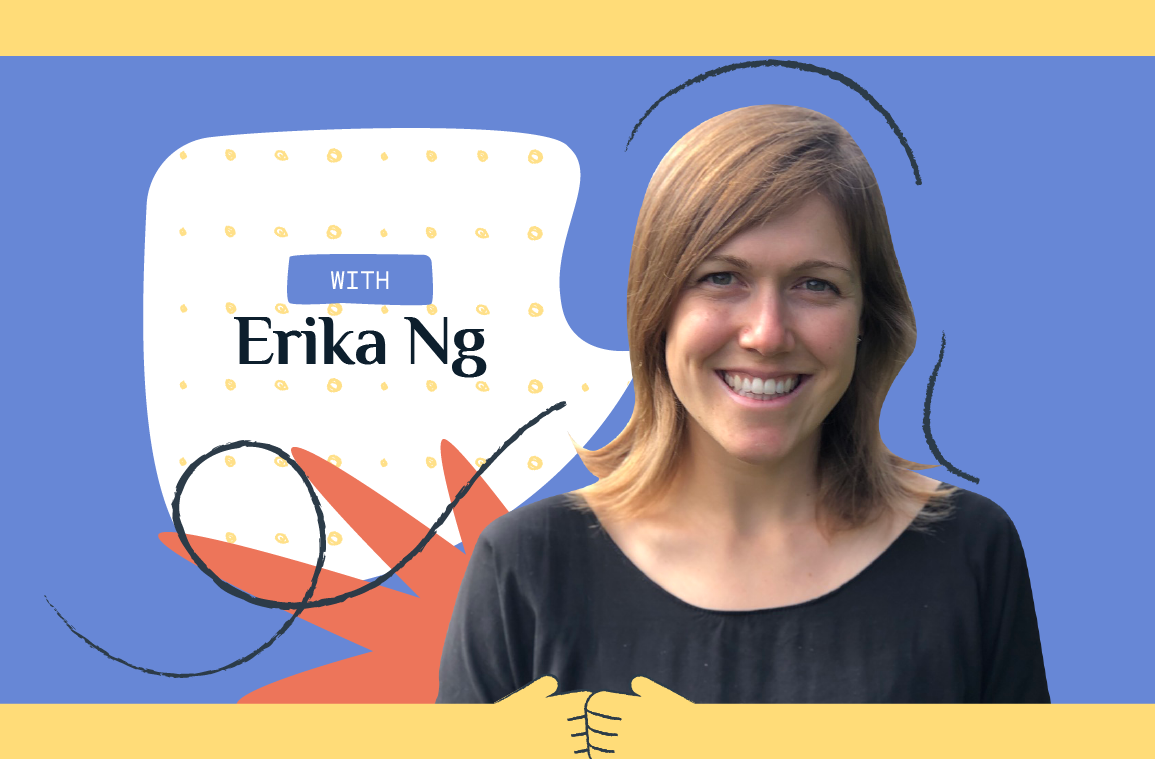In this inaugural episode of the Behavioral Health Collective Podcast, Erika Ng introduces herself as the host of the show. Join the community by listening in, sharing feedback, or requesting specific topics!
In this inaugural episode of the Behavioral Health Collective Podcast, Erika introduces herself as the host of the show. She is a Behavior Analyst located in British Columbia, Canada. She shares the vision of the podcast which is to share some of the great work happening in the field of Behavior Analysis to improve the lives of children, adolescents, parents, educators and the greater community. Erika shares the goals of the Behavioral Health Collective which includes sharing evidence-based information with families and educators while advocating for better access to services to improve behavioral health for individuals. Join the community by listening in, sharing feedback or requesting specific topics!
Related Read: How to Effectively Collaborate with Teachers
Resources from this episode:
- Subscribe to the newsletter to get our latest articles and podcasts
- Check out Erika’s Website
- Connect with Erika on LinkedIn
- Geneva Centre for Autism
- Acceptance and Commitment Training (ACT)
Related articles and podcasts:
- About The Behavioral Collective podcast
- Article: What Does A Child Behavioral Specialist Do?
- Article: What Is Online Parent Coaching, And How Can It Help Me?
We’re trying out transcribing our podcasts using a software program. Please forgive any typos as the bot isn’t correct 100% of the time.
Read The Transcript:
Erika Ng
Hey there! Thank you so much for joining me and welcome to the Behavioral Health Collective Podcast. I’m really excited to be sharing a little bit with you about the goals of this podcast and where it originally came from. My name is Erika Ng and I’ll be hosting conversations with behavioral health professionals telling stories of collaboration.
While this podcast was originally about sharing ways of behavior analysis as being applied outside of the neuro-divergent community, I’ve shifted goals for the podcast to be towards collaboration within behavioral health services. Not only is this more true to the name of Behavioral Health Collective, but I’ve learned and realized over time that it’s really more in line with my values.
In recognizing the ways that behavioral analysis has been and continues to be applied in harmful ways, I want the BHC to be part of the solution to change the field from within. I personally believe that a really important component of changing behavioral analysis towards a science that is used in a compassionate, empowering, and dignified way is recognizing that it is one tool out of many to support behavioral health.
This means listening and learning from other behavioral health fields and from the very folks that behavioral health therapists seek to support. Collaborating with other professionals and clients is of paramount importance of the success of behavioral health services, including behavior analysis. Instead of leaving the field all together, hand ringing or simply avoiding the issues that have come to the fore, I’d really like to be part of the shift towards better behavioral health services.
So after deciding to make this shift towards collaboration, any episodes released after May, 2022, we’ll always have a focus on and feature stories of collaboration. So this might include collaborating with clients on a treatment plan or collaborating between behavioral health professionals on working together to support a client.
I hope this platform is used to inspire better teamwork, communication, and professional humility between clinicians, because I really believe that we’re better together, each bringing a different perspective and tools to the table. While episodes in the past have almost exclusively been with BCBAs. A future focus will always include other professionals, so occupational therapists, speech and language pathologists, psychologists, clinical counselors, or other behavioral health therapists of some sort.
I do wanna share a little bit about my own professional journey to kind of fill in that gap about how this new focus truly is more in line with my values. But before I do, I’ll just say that I really welcome feedback and input on who to feature on this show and how to better serve you as the listeners with this platform. I really do count it a privilege to be able to chat with so many amazing guests and I’m also really humbled that you’re even taking the time to check this podcast out. So thank you.
Okay, so back to my story briefly and how I got doing this. So I’m a behavior analyst or a BCBA and I work as a behavior consultant in British Columbia, Canada, working in homes and schools with families. Prior to becoming a board certified behavior analyst, I was a special education teacher in Ontario, and there I serve students with multiple exceptionalities in special education settings.
This really was where I decided I wanted to show more about how to meaningfully and effectively help my students in many ways. So this included maybe learning how to learn new skills more efficiently and effectively, or how to manage anxiety, how to improve their quality of life by addressing challenging behavior.
Because sometimes we know challenging behavior can impede inclusion in the community and increase ones at risk of physical harm at homeschool or in the community. After learning about applied behavior analysis through professional development at the Geneva Centre for Autism, I decided to pursue my Master’s of Education and BCBA fields work to get credentialed as behavior analyst.
My experience across home, school, and community settings made me realize a need for the science of human behavior to be applied across all settings, as I continued to meet more and more families who were seeking support for their children, but didn’t know where to turn. I’ve really seen how effective the science of behavior can be, but also how it can be applied in ways that don’t always take into account that clients values are autonomy.
So the goal of this podcast once was to connect families to practical advice from BCBAs who were experts in various areas, and also to hear firsthand their experience of receiving services from a behavior analyst. However, for the reasons I mentioned earlier, the focus has shifted towards stories of collaboration and BCBAs are required by our ethics code to work with other professionals for the benefit of the client. So really my goal is to share stories of exactly that.
In doing more acceptance, commitment, training or ACT in my own life, I’ve realized that collaboration really is a value of mine. I’ve always loved working with other professionals, bringing people together. Whether this is working with parents of my students, or when I was at my special education school with SLPs, OTs, maybe other BCBAs, teachers, educational assistants, school admin, so many people that I’ve worked with over time. I’ve always been really energized by teamwork and the synergy that can come out of teams coming together to mutually support a client with professional humility, a shared vision, and different tools and perspectives.
So what is the Behavioral Health Collective? The Behavioral Health Collective is a community for behavioral health professionals who are passionate about working together across disciplines to improve client outcomes by valuing collaboration, connection, professional humility, and evidence-based practices across a variety of behavioral health fields.
So we are a multidisciplinary community. The goal is to foster collaboration between these clinicians to really improve client outcomes that could not otherwise be achieved in silos, while also demonstrating a wide variety of applications of behavioral health sciences. I really do believe that we are better together.
Lastly, I just wanna mention something about language and labels. While the focus of the BHC podcast is not specifically on serving neurodiverse clients, that will come up. So after speaking further with other professionals, engaging with neuro divergent individuals, it’s really clear that I guess the best term to use is neuro divergent, but also that anybody who is neuro divergent would also self-identify in their own way and to listen to that.
So for example, in the autistic community, many adults would label themselves as identity first language, so they would call themselves autistic. However, some folks do prefer person-centered language, so they would maybe say, I’m someone with autism. So as you listen to the podcast, some guests may describe the language they’ll be using in their episode, but I will attempt to use a range of terms interchangeably so as to be as inclusive as possible. Just wanted to mention that before we jump into other conversations.
So thank you so much for joining me for this initial episode, and I really look forward to sharing more conversations with you about collaboration on upcoming shows.
Find out if Parent Coaching can help you and your child on your journey, here: How Does Parent Coaching Work?
Related List of Tools: 10 Best Practice Management Software For Healthcare Providers

